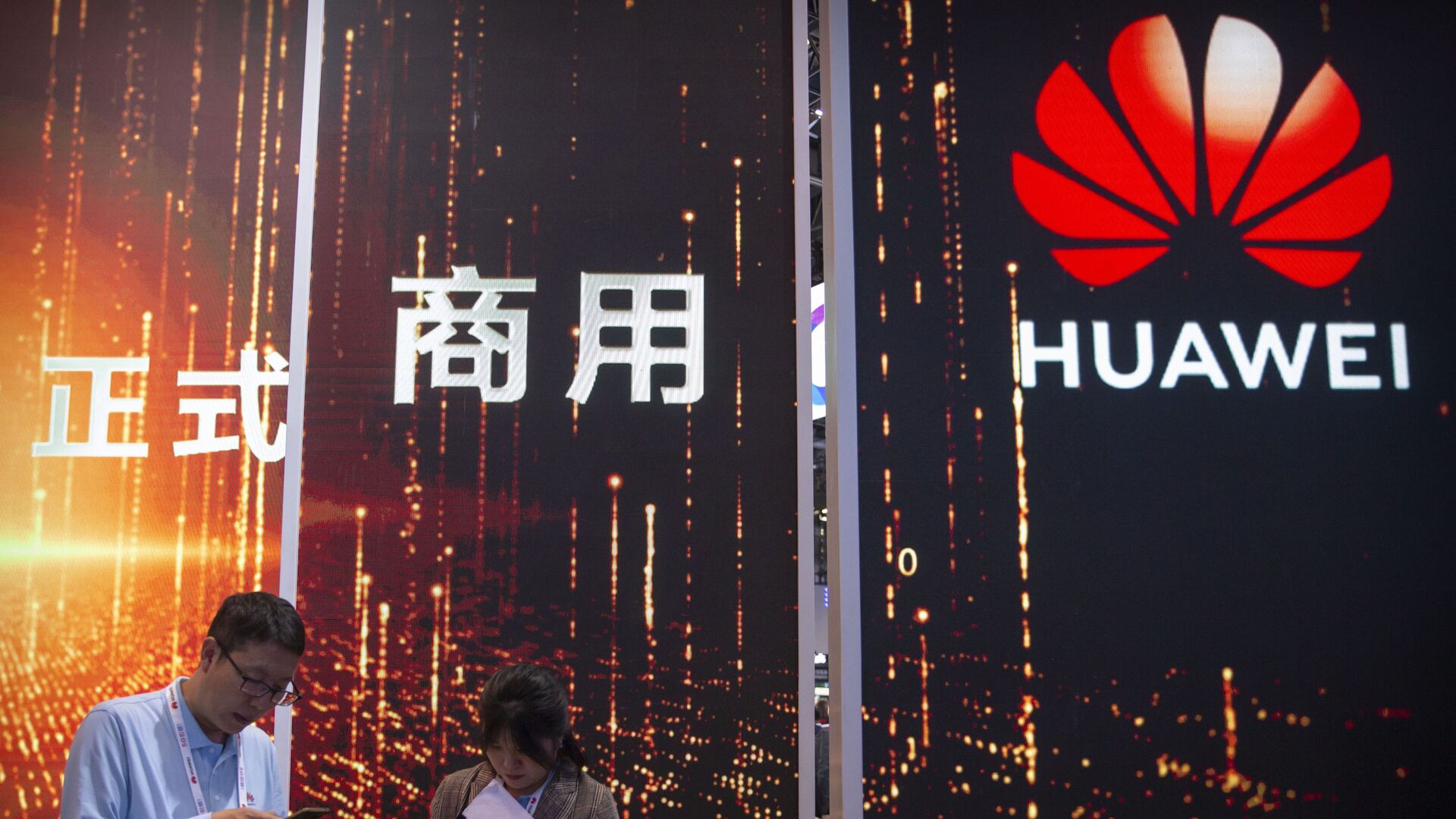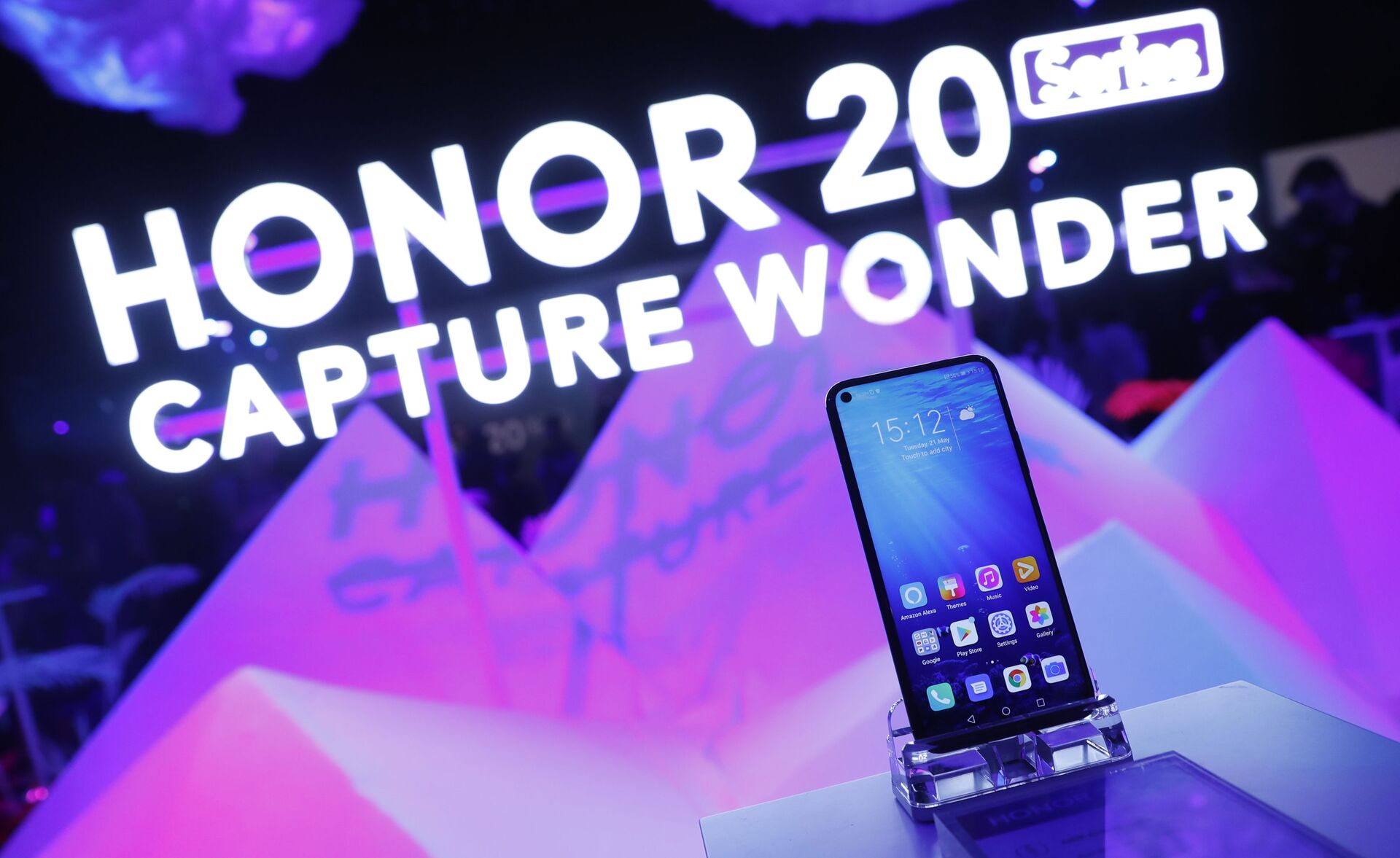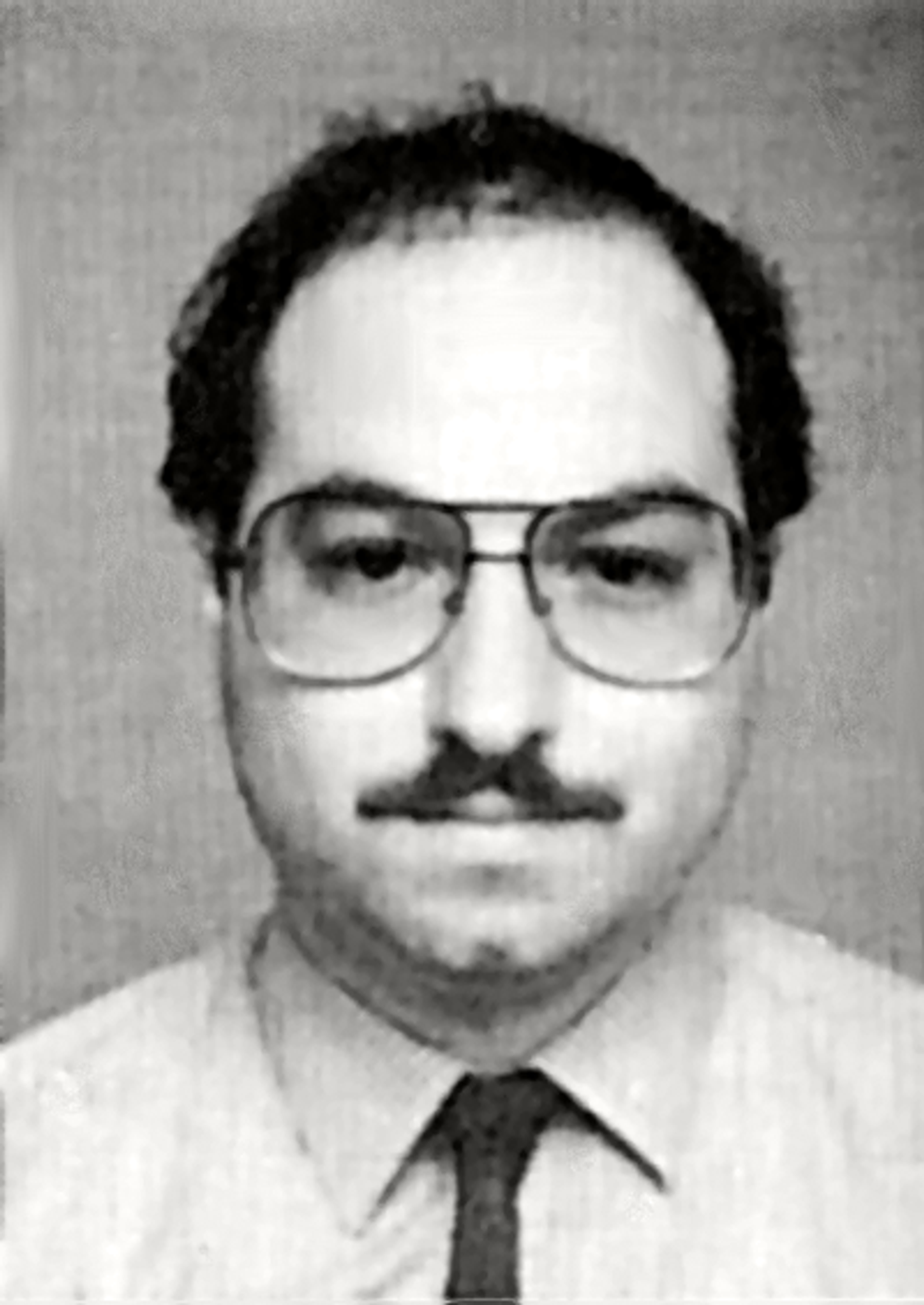Where’s the Rage for Israel and NSO’s Pegasus the West Had for China’s Huawei?
20:18 GMT 21.07.2021 (Updated: 11:58 GMT 26.10.2022)

© AP Photo / Mark Schiefelbein
Subscribe
Anger has swirled around the globe over revelations that Pegasus spyware created by Israeli software firm NSO Group has been used by governments to wiretap journalists and public figures. However, the fury is mild when compared to claims Beijing compelled Huawei to put a “backdoor” into its phones, which has never been proven.
Earlier this week, a group of news outlets including the Washington Post and Forbidden Stories, along with human rights group Amnesty International, revealed disturbing findings: governments around the globe have been buying up Pegasus spyware from NSO Group and using it to spy on journalists, public figures, and even other world leaders.
50,000 Phones Targeted
Thousands of phone numbers are on the list, with some of the biggest names including French President Emmanuel Macron and Moroccan journalists Omar Radi, both allegedly wiretapped by Morocco, and journalist Jamal Khashoggi, allegedly wiretapped by his native Saudi Arabia prior to being killed by a Saudi hit squad at the Saudi consulate in October 2019.
In all, 180 journalists were targeted in 20 countries, including Kazakhstan, India, the United Arab Emirates, Qatar, Azerbaijan, Hungary, Morocco, Rwanda, Democratic Republic of the Congo, Mexico, Egypt, Algeria, Togo, Turkey, France, Spain and the United Kingdom. They also targeted at least 65 business executives, 85 human rights activists, 189 journalists, and more than 600 politicians and government officials, including high-level officials like cabinet ministers, diplomats, and military officers, according to The Washington Post.
Also on the list were 10 prime ministers, three presidents, and one king, including Iraqi President Barham Salih, South African President Cyril Ramaphosa, the prime ministers of Pakistan, Egypt, and Morocco, and seven former heads of government from Lebanon, Uganda, and Belgium, and several other countries.
Shalev Hulio, NSO’s chief executive and co-founder, has cast the story as flimsy, but said the company is “investigating every allegation … and if we find that it is true, we will take strong action.”
"NSO Group's technologies have helped prevent terror attacks, gun violence, car explosions and suicide bombings. NSO Group is on a lifesaving mission and the company will faithfully execute this mission undeterred, despite any and all continued attempts to discredit it on false grounds,” the company told the US Public Broadcasting Service.
On Wednesday, the firm put out a press release saying “enough is enough,” announcing it would cease responding to media inquiries about what it called a “vicious and slanderous campaign.”
“NSO is a technology company. We do not operate the system, nor do we have access to the data of our customers, yet they are obligated to provide us with such information under investigations,” the company added.
New: NSO group says it will no longer respond to media on the #Pegasus revelations #FreePress pic.twitter.com/JwU774ccxX
— WikiLeaks (@wikileaks) July 21, 2021
However, it denied having any knowledge of the use of Pegasus to spy on other targets, and noted to the Post that “Israel does not have access to the information gathered by NSO’s clients.”
That said, a former senior US national security official who has worked closely with the Israeli security services also told the outlet “It’s crazy to think that NSO wouldn’t share sensitive national security information with the government of Israel. That doesn’t mean they’re a front for the Israeli security agencies, but governments around the world assume that NSO is working with Israel.”
How Have Nations Reacted?
Representatives from many of the nations implicated in the investigation have unanimously denied the reports they spied on journalists, dissidents, and world figures, insisting their governments are based on the rule of law. However, it’s notable that not all of the countries where journalists were targeted have been asked for comment, with France, Spain, and the UK being notable exceptions.
Asked by The Hindu, a White House spokesperson said on Wednesday that “The United States condemns the harassment or extrajudicial surveillance of journalists, human rights activists, or other perceived regime critics.”
However, despite the admission by NSO that it sells such software and by Israel that it, at the very least, approved of each sale, and in light of comments by foreign intelligence officials that Israel likely materially benefitted from the affair by gleaning information from the group, it seems that a bigger scandal would be expected. But not a single government has demanded punishment for either NSO or Israel, or decried even the possibility that Israel helped countries wiretap people not suspected of criminal actions, or raised fears that a country’s government likely got ahold of classified information from them via illegal means.
There have been no calls for sanctions against Israel or NSO or any senior figures at NSO, or prosecutions, or frankly even acknowledgements that the affair is even happening outside of dry-mouthed condemnations. In fact, the only calls for sanctions have been by journalists themselves, such as the Intercept’s Ryan Grim and Electronic Intifada’s Ali Abuminah.
There has been little attention to this vital fact: All of NSO Group's exports of its malware to regimes that use it to spy on journalists and activists must be approved by Israeli defense ministry. Where are the calls for sanctions on the Israeli regime? https://t.co/vKf1INZ3VA
— Ali Abunimah (@AliAbunimah) July 19, 2021
If the Biden administration is remotely seriously about standing up for a free press, they should sanction NSO Group and send a signal this won't be tolerated
— Ryan Grim (@ryangrim) July 19, 2021
The reactions - and lack thereof - stand in stark comparison to how Chinese tech giant Huawei has been treated.
Huawei Crucified Without Evidence
Shenzhen-based Huawei is the world’s largest manufacturer of both telecommunications equipment and smartphones and a major supplier of 5G internet service. The company was started in 1987 by Ren Zhangfei, a former Chinese military engineer, although he owns less than 2% of its shares, which are owned by Huawei employees.
The US has claimed for years that Ren’s military experience and membership in the Communist Party of China make Huawei a security liability, but in 2018 a more concerted effort began aimed at forcing US military and government agencies from using products by Huawei and another Chinese phone maker, ZTE, claiming that the CPC had forced Huawei to insert a secret “back door” into its phones and networks, enabling the Chinese government to spy on users if so desired.
The company and the Chinese government have both denied that such a backdoor does or even could exist or that they would pursue one if it were possible.
“If they believe there’s a backdoor, they should offer evidence to prove it,” Huawei chairman Liang Hua challenged US intelligence in January 2019. At the time, Washington said it didn’t need to, citing Huawei’s alleged proximity to the Chinese government as sufficient proof.

Members of the invited audience of fans and media try out the new Honor 20 series of phones following their global launch in London, Tuesday, May 21, 2019
© AP Photo / Alastair Grant
However, as the US began hounding allies in Germany and the “Five Eyes” nations to drop Huawei’s technologies, it did begin providing them with evidence to support its claims - evidence London, Berlin, and Paris all said wasn’t very convincing. Still, within months each of them had either rejected bids by Huawei or suddenly found new evidence to justify falling into line with US demands.
The firm was placed on a US blacklist in 2019, requiring Americans to obtain a special license from the US Department of Commerce before doing business with Huawei, effectively banning Americans from buying Huawei’s phones, and several nations have now sanctioned Huawei as well. The company’s CFO, Meng Wanzhou, was also arrested in Canada in connection with charges in a US court that aren’t related to the espionage allegations but which are widely seen as further persecution of the company.
The sanctions had their effect, too: in March, a first-quarter earnings report showed its sales down 16.5% year-on, part of a trend that caused it to sell its Honor smartphone marquee last year.
Legacy of Israeli Spying on Allies
In September 2019, Politico reported that US government officials had concluded Israel was responsible for placing cell phone surveillance devices called “Stingrays” around Washington, DC, and had even used them to spy on White House communications. A former senior official used as a source for the article said the devices were likely intended to spy specifically on then-US President Donald Trump, a known lover of his iPhone.
Then-Israeli Prime Minister Benjamin Netanyahu dismissed the report, saying, "Israel doesn't conduct espionage operations in the United States, period."
However, the claims go back much further. In 1985, US intelligence analyst Jonathan Pollard was arrested, charged, and later convicted of espionage after he passed classified US Navy documents to Israel, including dirt on Israel’s Arab neighbors, for $1,500 a month.
Israel also spied on then-US Secretary of State John Kerry in 2014 and 2015 during negotiations for what became the Joint Comprehensive Plan of Action, according to reports by Der Spiegel and the Wall Street Journal.
In 2017, Le Monde revealed that Israel’s Mossad had penetrated the French intelligence directorate in what it called Operation Ratafia, with the goal of developing close relationships with fellow spies “to the point of crossing the line of turning them into double agents.”
None of these brought calls for sanctions, either, revealing how politically motivated the attacks on Huawei and other Chinese tech firms really are. Why does the West continue to tolerate the Israeli government spying on them and their citizens?


